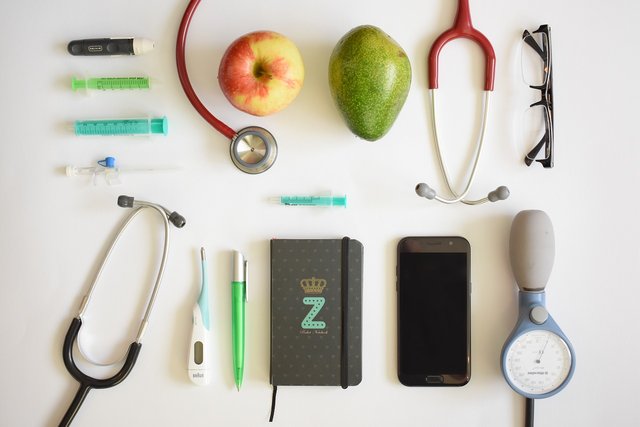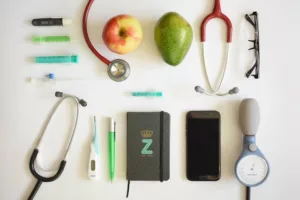
Did you know that the global obesity rate is around 13%? This means that almost 1 in 10 adults suffer from obesity. People who are overweight tend to suffer from severe pains that prevent them from doing normal activities, including wearing their clothes or picking up something on the ground.
From here comes the vital role of Dietetics BSc holders in general. Dietitian doctors help overweight people to lose weight, and eating healthier in general. The need for qualified Dietitian doctors is growing rapidly. Despite the fact of many Dietetics BSc holders are unqualified and unequipped with the right tools to help overweight people, There’re a few that help people to be in shape and become healthier.
In this blog, you’ll know how to become an expert Dietitian who helps people to become healthier
The Skills a Dietitian Needs to Know
As a dietitian, your skills are in high demand. Not everyone will agree on how to eat healthily or lose weight. In fact, there often is a lot of confusion out there when it comes to these topics. Offering this advice on television and radio keeps you relevant, but there are other things you offer that people want too.
Things like group nutrition classes, support groups, and one-on-one counseling can boost your income, and bring in clients who also are interested in basic healthy eating education. Other areas that generate lots of work include cooking demonstrations and educational programs for young kids. Here’s a list of them;
What Are Your Nutrition Services That You Master?
Nutrition Services is a system of affairs dealing with the intake of food and its distribution for use in the body. It includes such things as the production, processing, and storage of foods. Dietary habits, physical activities, and the environment can have an important influence on health.
Most people who are employed in this industry are expected to be knowledgeable about nutritional sciences, responsible for food safety supervision, or be an expert on dietetics and nutrition. They may also be responsible for managing cafeterias or other food service establishments; counseling individuals or groups, supervising school lunch programs; planning menus to stay within budgetary constraints, overseeing institutional kitchens; creating nutritional programs for hospitals, nursing homes, and prisons, and preparing research studies on nutrition problems to find solutions.
There’re some other specific skills that you should hone like, providing nutrition care for many residents along with supervising diet technicians in the assessment of nutritional status development. Designing and implementing individualized nutrition care plans based on the baseline data from users’ datasheets. Designing goal-oriented nutrition care plans and providing them with expertise on leading an active life to keep the risk of a heartbeat rhythm abnormality low.
You Have a Systematic Plan To Care About Your Patient
The modern dietitian is a highly trained professional who can perform a variety of functions. In addition to assessing the nutritional needs of patients and developing plans to meet those needs, they educate patients on how to make healthy lifestyle choices. They also work with other health care professionals, such as physicians and nursing staff, to ensure that each patient receives a coordinated treatment plan.
Patient care is your first step to developing a systematic plan for managing any condition. It begins with a thorough physical examination. The Dietitian then evaluates the patient’s diet and lifestyle in order to assess their needs. This includes:
Dietary Assessment – Nutritionists will assess the nutritional adequacy of dietary intake, including the presence or absence of any food intolerances, allergies, food preferences, or restrictions.
Physical Activity Assessment – Dietitian will evaluate physical activity levels, including the frequency and duration of exercise.
Lifestyle Assessment – Dietitian will assess current lifestyle patterns such as smoking status (e.g., number of cigarettes smoked per day), alcohol consumption, drug use, etc…
The Dietitian will also take into account all medications that are being taken by the patient (including prescription drugs) so that they can make an accurate assessment about whether these drugs have any negative effects on nutrition or if there is an interaction between them and other foods being consumed (e.g., some drugs may increase appetite which could lead to weight gain).
You Should Be Knowledgeable About Nutrition
The importance of nutrition is often overlooked in our society. It is often seen as something that only applies to people who are sick or people who want to lose weight. This couldn’t be further from the truth. Proper nutrition can have a profound effect on your patient’s physical and mental health, their mood, and the way they feel about themselves.
In order to make sure that they are getting the proper nutrition for their body, you need to educate them about what nutrients are important and how they work in the body.
Most food and health professionals are required to have some form of training in nutrition as it plays an important role in their work. However, people do not always have to have a degree or certification as long as they are well versed in the subject matter. Dieticians may specialize in different areas such as nutrition for children or patients with diabetes, but many will also teach courses on food safety, cookery skills, and healthy lifestyle management to name just a few subjects.
Weight Loss Skills That An Expert Dietitian Should Have
Skillful Dietitian Should be able to help in designing plans with personalized menus and recipes for weight loss and help establish healthy eating habits. Providing nutritional screening, assessment, and motivational counseling to clients to help them lose weight.
In Addition to Participating in weekly meetings between different healthcare providers by discussing & suggesting effective weight loss strategies for patients. Giving advice and promoting healthy diets during seminars and conversations. One of the most important things that any successful weight loss program is doing frequent discussions about nutrition also. These conversations can take place with a patient in person or even over the phone and make sure they are scheduled ahead of time.
The Process of Becoming an RDN
What’s RDN? Registered dietitian nutritionists-RDNs- are the leading food and nutrition experts around. They use their nutrition expertise to help individuals make unique, positive lifestyle changes. They work throughout the community in hospitals, schools, public health clinics, nursing homes, fitness centers, food management, food industry, universities, research, and private practice. They are advocates for advancing the nutritional status of people around the world through educating & empowering families.
To Become a Registered Dietitian Nutritionist (RDN) you should: Earn an accredited bachelor’s or master’s degree, complete a dietetic internship, pass the Commission on Dietetic Registration (CDR) exam, Obtain a state license, and Maintain state license and registration
According to The Compensation & Benefits Survey of the Dietetics Profession on Journal of the Academy of Nutrition and Dietetics Website;
The median hourly wage among practicing registered dietitian nutritionists (RDNs) is $33.65 per hour (as of January 1, 2021). If annualized, this equates to a full-time salary of approximately $70,000=£53687.16 per year. The median hourly wage among practicing nutrition and dietetics technicians, registered (NDTRs) is $23.22=£17.81 per hour, equating to an annualized full-time salary of approximately $48,300=£37044.14 per year.
So Your first step to becoming an RDN is to have a unique BSc, One of them is Dietetics, BSc at the University of Debrecen.
What’s The Dietetics, BSc at the University of Debrecen?
The Dietetics, BSc covers the huge influence nutrition has regarding the function of the human body in health and disease. It provides professional theoretical information and practical skills to prevent, treat and manage poor health with food, nutrients, and dietary change. As a qualified dietitian after completion of this BSc, you will have the expertise and experience to use your knowledge of nutrition to work with people. You will be able to promote a healthy lifestyle, optimize health, and manage/prevent diet-related diseases.
Dietitians are the only health professionals qualified to diagnose, assess and treat nutritional problems. They’re not just nutritionists, they’re experts on human nutrition. This program will help you improve your health knowledge and share it with others. You’ll gain more practical knowledge about nutrition since you will be able to read the latest science results and interpret them into digestible terms. Furthermore, you will help people to manage their health and nutrition-related diseases.
Once you have successfully finished this program, you will have a profound understanding of nutrition’s influence on both mind and body, helping people to overcome the barriers that make them shy and not confident about themselves. As a dietitian you will be guided to acquire communicational and professional skills to become a qualified health care professional, serving people in need by improving and maintaining people’s quality of life and health. Theoretical Knowledge: 61% Practical Skills: 39%
The Admission Requirements: High school certificate, Compulsory entrance interview, and English language proficiency (CEFR level B2, assessed at the compulsory entrance interview)
In conclusion,
Dietitians help their clients become healthier to be able to do something better in the future. They develop nutrition plans for people that are tailored to their specific needs. They can give advice on how to do low-calorie diets when it is a vegetarian diet and what is the best way to recover after an illness.









Add a comment